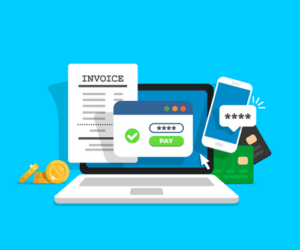
Running an Ecommerce business is a whirlwind of product launches, shipping logistics, and chasing five-star reviews. But if your bookkeeping is an afterthought, it can lead to serious financial stress. Solid bookkeeping isn’t just about staying compliant at tax time—it’s the foundation of a healthy, growing business. Let’s break down why bookkeeping matters and how to stay organized all year long.
1. Why Bookkeeping Matters for Ecommerce Sellers
Bookkeeping is the process of recording and organizing all your business’s financial transactions. For Ecommerce sellers, it’s especially important because:
- You likely sell across multiple platforms (Shopify, Amazon, Etsy, etc.)
- You deal with high transaction volumes
- You incur a variety of expenses (shipping, software, ads, inventory)
- You might owe sales tax in multiple states or countries
Without accurate, up-to-date books, you’re flying blind—and that’s risky for your business.
2. Avoiding Tax Pitfalls
One of the biggest reasons to keep your books in order? Taxes. When your finances are disorganized:
- You could miss valuable deductions (and overpay the IRS!)
- You might file late and rack up penalties
- You could struggle to calculate your true profit
Consistent bookkeeping ensures that all your income and expenses are recorded, categorized, and ready to go when tax time rolls around.
💡 Pro tip: Keep digital receipts and reconcile your accounts monthly to avoid a year-end scramble.
3. Staying on Top of Cash Flow
Cash flow is the lifeblood of your Ecommerce business. Bookkeeping helps you:
- Understand your current cash position
- Plan for upcoming expenses (like inventory restocks or marketing campaigns)
- Avoid surprises like overdraft fees or unpaid bills
When you have clear visibility into your income and spending, you can make smarter decisions and sleep a little easier at night.
4. Tools to Make Bookkeeping Easier
Good news: You don’t have to do it all manually. There are plenty of tools designed to take the pain out of bookkeeping:
- QuickBooks Online or Xero: These cloud-based platforms sync with your bank accounts and Ecommerce channels.
- A2X Accounting: Automatically reconciles sales from Amazon, Shopify, Etsy, and more.
- Dext or Hubdoc: Snap photos of receipts and auto-upload them to your accounting software.
💡 Bonus tip: Choose tools that integrate with your selling platforms to reduce manual entry and errors.
5. Consider a Bookkeeping Service
If bookkeeping feels overwhelming (or just not your thing), outsourcing can be a game-changer. A professional bookkeeper who understands Ecommerce can:
- Categorize your expenses correctly
- Reconcile your accounts monthly
- Prepare reports that help you understand your finances at a glance
It’s an investment that pays off—especially when tax season hits.
Final Thoughts
Bookkeeping might not be the most glamorous part of running an Ecommerce business, but it’s one of the most important. Keeping your books organized year-round helps you avoid tax headaches, manage cash flow with confidence, and set your business up for success.
Need help getting your bookkeeping sorted? Our team specializes in Ecommerce accounting, and we’re here to help keep your numbers clean and your stress levels low. Fill out a lead-form on our website and apply for a consultation call.







